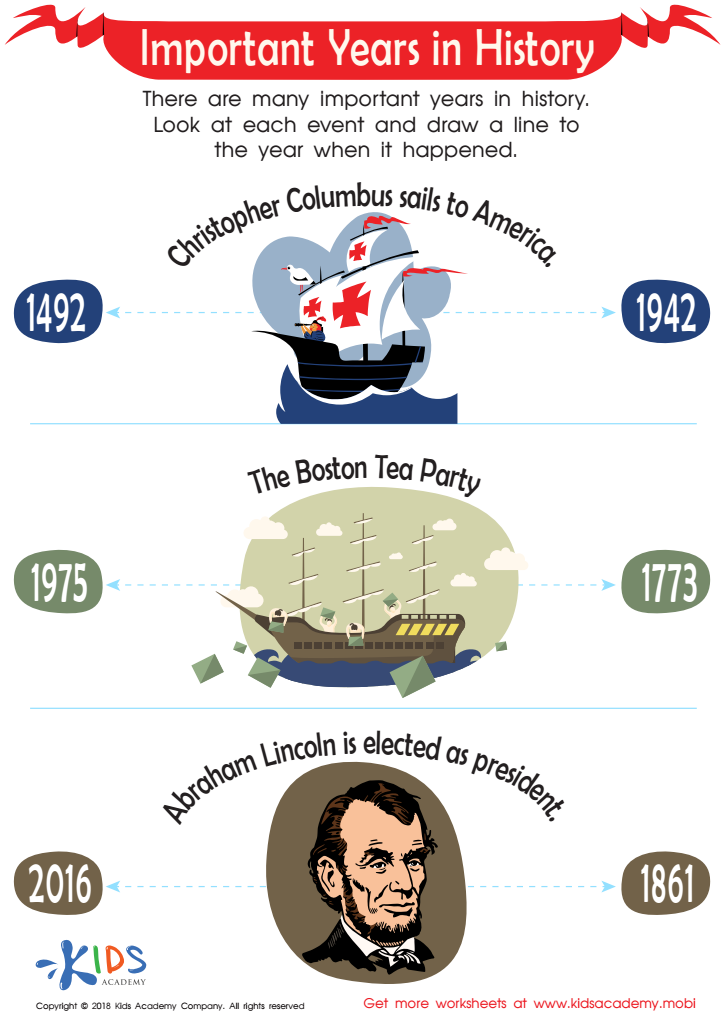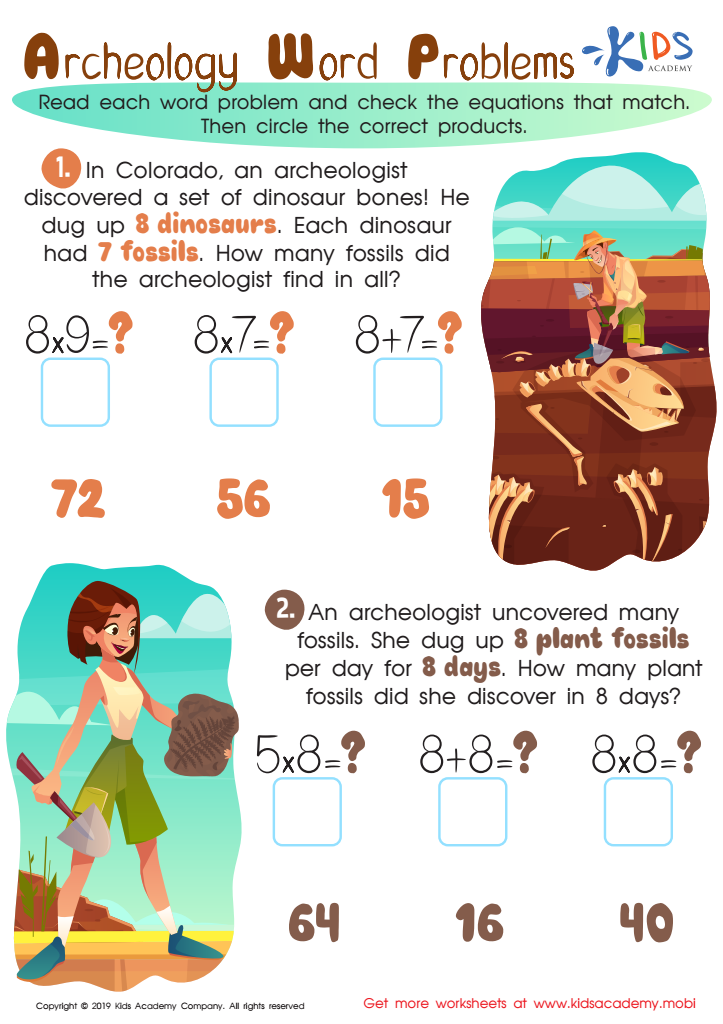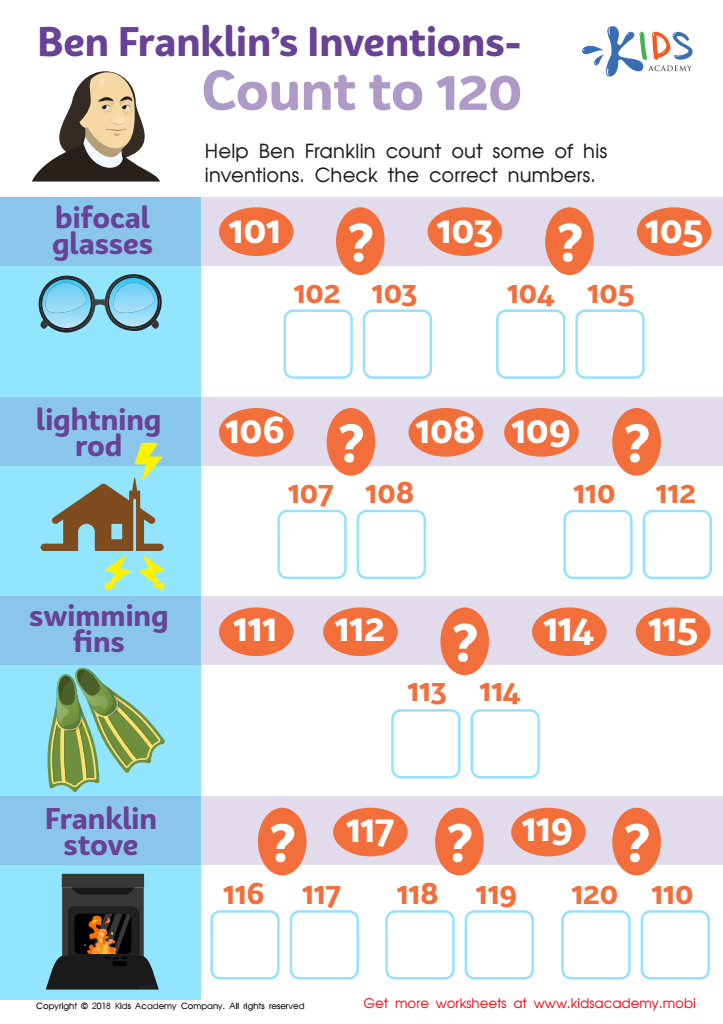Historical Knowledge Math Worksheets for Ages 5-6
3 filtered results
-
From - To
Discover our engaging "Historical Knowledge Math Worksheets" designed specifically for children ages 5-6. These worksheets integrate early math concepts with fun historical themes, making learning both educational and entertaining. Each activity encourages children to explore numbers and counting through captivating stories and characters from history, fostering curiosity and a love for learning. With vibrant visuals and interactive exercises, young learners can practice essential math skills while gaining insights into historical events. Ideal for parents and educators seeking to enrich their curriculum, these worksheets provide a unique way to combine math and history, supporting comprehensive knowledge development for budding scholars.


Important Years in History Worksheet


Archeology Word Problems Worksheet


Ben Franklin’s Inventions – Count to 120 Worksheet
Historical knowledge in mathematics is crucial for young learners aged 5-6 as it provides a foundational understanding of math concepts while fostering a connection to culture and history. At this early age, children are naturally curious and eager to explore the world around them. Integrating historical narratives about the development of mathematical ideas helps them see math not just as a collection of rules, but as a field shaped by human experiences, creativity, and diverse cultures.
When parents and teachers emphasize the histories behind numbers, counting systems, and shapes, they enhance children's math literacy and critical thinking skills. This approach invites young learners to appreciate the contributions of different civilizations, from ancient Egyptians to early mathematicians in Asia and Africa, making math more relatable and relevant to their lives.
Moreover, understanding the historical context of mathematical concepts can motivate children, showing them that math is a dynamic and evolving discipline. Engaging with stories and figures in math history can spark their imaginations, fueling their interest in learning and exploration. Ultimately, when parents and educators invest in historical knowledge of mathematics for young learners, they help cultivate informed, culturally-aware citizens who value the rich tapestry of human intellectual achievement.
 Assign to My Students
Assign to My Students





















